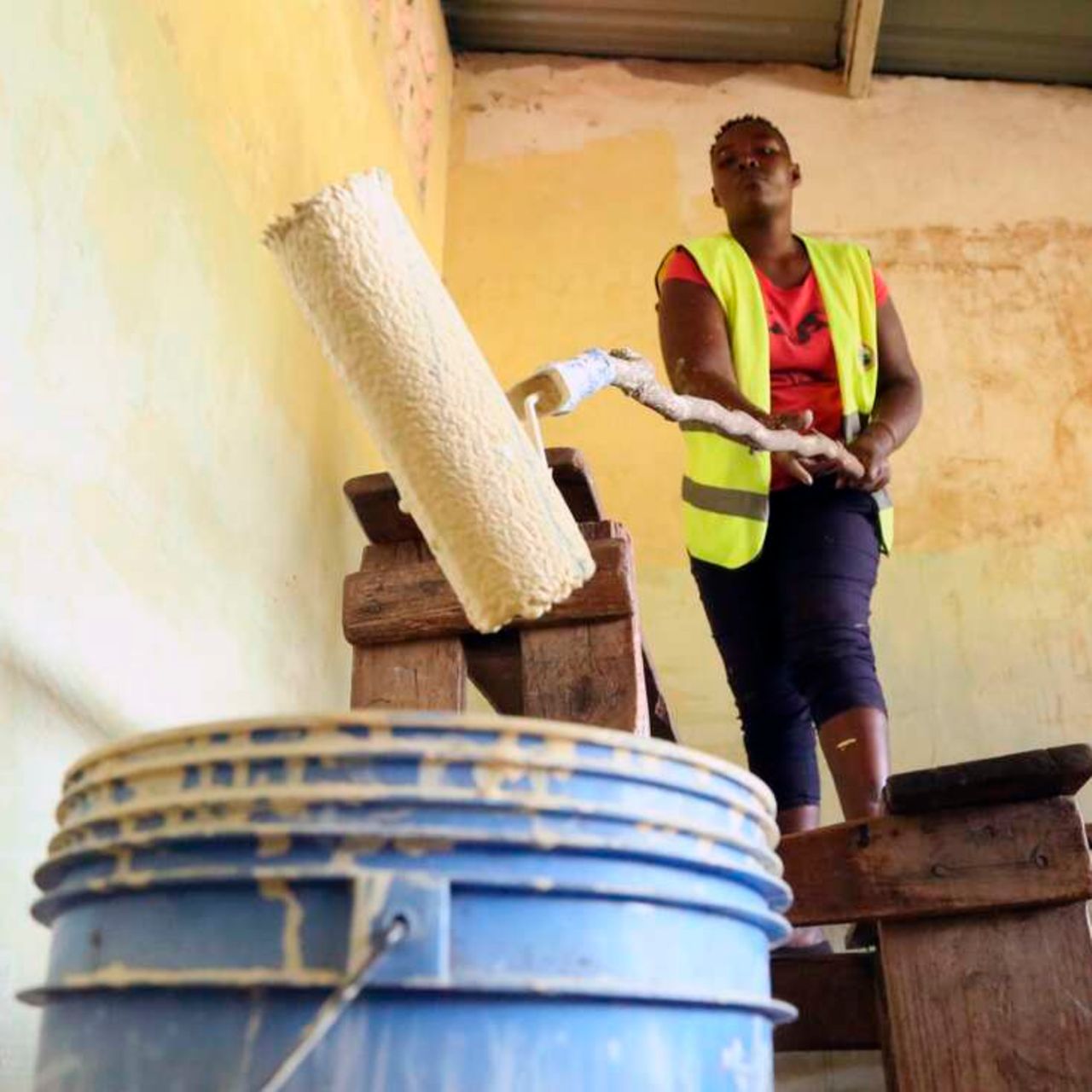Business
How Paint Makers Colluded to Fix Prices

When the Jubilee administration announced plans to build half a million new low-cost houses as part of its Big Four Agenda in its second and final term in office, paint manufacturers started hatching plans to cash in on the anticipated construction frenzy.
Kenya’s paint market, dominated by a handful of major players, makes it easy for them to gang up to control the trade by cleverly fixing prices.
They do so by, among others, creating an artificial shortage, and fixing discount prices and transport charges, which play a key role in the eventual price of commodities.
The Affordable Housing Programme, which aims to build 500,000 low-cost houses, a rapidly growing real estate market, and the construction of mega infrastructure projects led to a rise in demand for paint, presenting a perfect opportunity for paint makers and suppliers to game the market.
The Competition Authority of Kenya (CAK) has detailed how leading paint manufacturers have been reducing the availability of paint in the market to create an artificial demand and reap from the resulting higher prices.
CAK, tasked with curbing shady practices perpetrated by unscrupulous firms out to cheat consumers, revealed the scheme in which firms sought to cash in on the expected steep rise in demand for paint to be used in the government’s low-cost housing programme.
Colluding to fix prices
“The Authority initiated investigations into an alleged collusive conduct by certain players in the paints manufacturing and distribution sector of Kenya in July 2018 pursuant to the provisions of Section 31 of the (Competition) Act,” CAK said in its financial statements covering the year 2019/20.
“This was in light of the fact that the manufacturing and housing sectors are part of the Big Four Agenda to drive economic growth in the country.”
The competition watchdog consequently raided Crown Paints, Basco Products Kenya, Kansai Plascon Kenya and Galaxy Paints and Coatings in December 2018, seeking to retrieve information on allegations that the firms, which control most of the paint market in Kenya, were colluding to fix prices.
“The Authority reviewed the information to determine whether there was alleged collusive conduct between these manufacturers and distributors of paint products,” CAK said.
CAK established that the companies colluded to fix paint prices in a direct affront to market forces of demand and supply, while they also worked together to set discount structures and transport charges.
Other illegal practices
“Accordingly, the parties were accorded an opportunity to respond to the allegations levelled against them pursuant to section 31 of the Act through written and oral submissions which were presented on various dates between September and November 2019,” CAK said.
Following the investigation, Basco subsequently accepted liability and paid Sh20,799,277 as settlement to CAK, while Crown, Plascon and Galaxy appealed the determination to the Competition Tribunal.
The law prohibits “agreements between undertakings, decisions by associations of undertakings, decisions by undertakings or concerted practices by undertakings which have as their object or effect the prevention, distortion or lessening of competition in trade in any goods or services in Kenya, or a part of Kenya”.
These include agreements between competing firms, suppliers and customers.
Other illegal practices include dividing markets by allocating customers, suppliers, areas or specific types of goods to certain companies, groups or associations, collusive tendering, and limits or controls on production.
Other banned practices are market access and investment, and applying dissimilar conditions to equivalent transactions with other trading parties, which places them at a competitive disadvantage.
Kenya Insights allows guest blogging, if you want to be published on Kenya’s most authoritative and accurate blog, have an expose, news TIPS, story angles, human interest stories, drop us an email on [email protected] or via Telegram
-

 Grapevine2 weeks ago
Grapevine2 weeks agoRussian Man’s Secret Sex Recordings Ignite Fury as Questions Mount Over Consent and Easy Pick-Ups in Nairobi
-

 News7 days ago
News7 days agoTHE FIRM IN THE DOCK: How Kaplan and Stratton Became the Most Scrutinised Law Firm in Kenya
-

 Investigations1 week ago
Investigations1 week agoMulti-Million Dollar Fraud: Three Kenyans Face US Extradition in Massive Cybercrime Conspiracy
-

 Economy1 week ago
Economy1 week agoIran Demands Arrest, Prosecution Of Kenya’s Cup of Joe Director Director Over Sh2.6 Billion Tea Fraud
-

 Business1 week ago
Business1 week agoA Farm in Kenya’s Rift Valley Ignites a National Reckoning With Israeli Investment
-

 Africa2 weeks ago
Africa2 weeks agoFBI Investigates Congresswoman Ilhan Omar’s Husband’s Sh3.8 Billion Businesses in Kenya, Somalia and Dubai
-

 Grapevine3 days ago
Grapevine3 days agoA UN Director Based in Nairobi Was Deep in an Intimate Friendship With Epstein — He Even Sent Her a Sex Toy
-

 Politics2 weeks ago
Politics2 weeks agoSifuna, Babu Owino Are Uhuru’s Project, Orengo Is Opportunist, Inconsequential in Kenyan Politics, Miguna Says
















